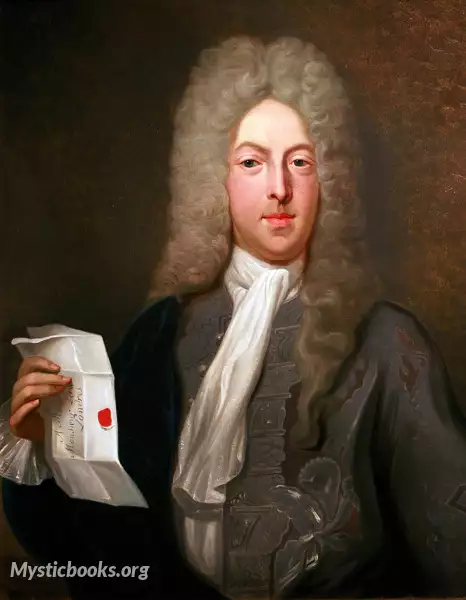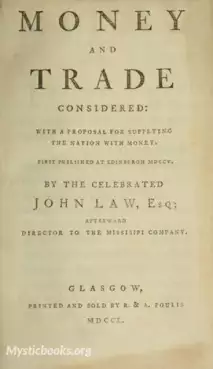
Timeline
Title
Country/Nationality
John Law
John Law was a Scottish economist who distinguished money, a means of exchange, from national wealth dependent on trade. He served as Controller General of Finances under the Duke of Orleans, who was regent for the juvenile Louis XV of France. In 1716, Law set up a private Banque Générale in France. A year later it was nationalised at his request and renamed as Banque Royale. The private bank had been funded mainly by John Law and Louis XV; three-quarters of its capital consisted of government bills and government-accepted notes, effectively making it the nation's first central bank. Backed only partially by silver, it was a fractional reserve bank. Law also set up and directed the Mississippi Company, funded by the Banque Royale. Its chaotic collapse has been compared to the 17th-century tulip mania in Holland. The Mississippi bubble coincided with the South Sea bubble in England, which allegedly took ideas from it. Law was a gambler who would win card games by mentally calculating odds. He originated ideas such as the scarcity theory of value and the real bills doctrine. He held that money creation stimulated an economy, paper money was preferable to metal, and dividend-paying shares a superior form of money. The term "millionaire" was coined for beneficiaries of Law's scheme.
Law was born into a family of Lowland Scots bankers and goldsmiths from Fife; his father, William, had purchased Lauriston Castle, a landed estate at Cramond on the Firth of Forth and was known as Law of Lauriston. On leaving the High School of Edinburgh, Law joined the family business at the age of 14 and studied the banking business until his father died in 1688. He subsequently neglected the firm in favour of extravagant pursuits and travelled to London, where he lost large sums by gambling.
On 9 April 1694, John Law fought a duel with another British dandy, Edward "Beau" Wilson, in Bloomsbury Square, London. Wilson had challenged Law over the affections of Elizabeth Villiers. Law killed Wilson with a single pass and thrust of his sword. He was arrested, charged with murder and stood trial at the Old Bailey. He appeared before the infamously sadistic "hanging judge" Salathiel Lovell and was found guilty of murder and sentenced to death. He was initially incarcerated in Newgate Prison to await execution. His sentence was later commuted to a fine, on the grounds that the killing only amounted to manslaughter. Wilson's brother appealed and had Law imprisoned, but he managed to escape to Amsterdam.
Law moved to Brussels on 22 December 1720 in impoverished circumstances when his properties in France were voluntarily confiscated. He spent the next few years gambling in Rome, Copenhagen and Venice but never regained his former prosperity. Law realised he would never return to France when Orléans died suddenly in 1723 and Law was granted permission to return to London, having been pardoned in 1719. He lived in London for four years and then moved to Venice, where he contracted pneumonia and died poor in 1729. His grave stone is in the San Moisè, Venice.
Books by John Law

Money and Trade Considered
Money and Trade Considered: With a Proposal for Supplying the Nation with Money is an early economics text written by John Law of Lauriston, published in 1705. In it, he attempts to compare the prosperity of other countries with that of Scotland, and...